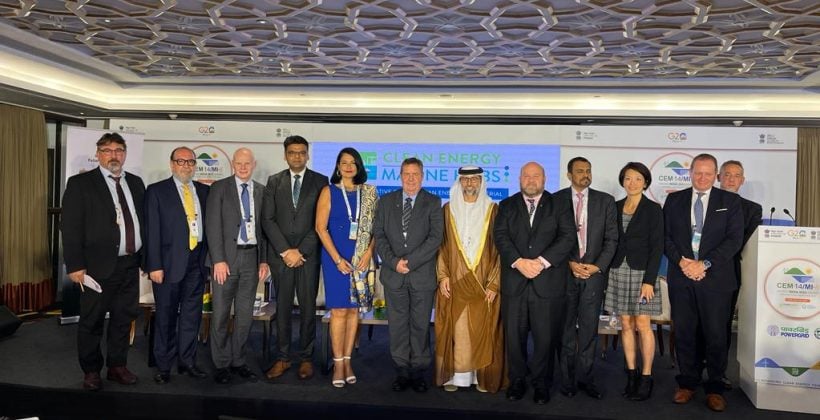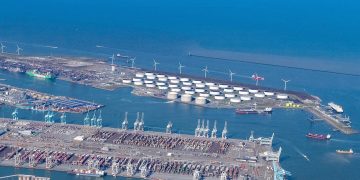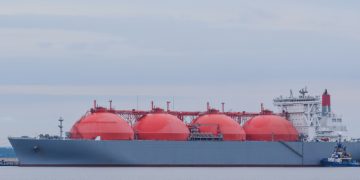The Clean Energy Ministerial (CEM) has today adopted the Clean Energy Marine Hubs Initiative (CEM-Hubs) which brings together the private sector and governments across the energy-maritime value chain to transform maritime transportation and production hubs for future low-carbon fuels.
The adoption took place at a summit in Goa, India. The CEM-Hubs initiative is initially backed by Canada, Norway, Panama, Uruguay and the United Arab Emirates (UAE) in partnership with the International Chamber of Shipping (ICS), and the International Association of Ports & Harbors (IAPH).
CEM-Hubs initiative
The CEM-Hubs initiative is a public-private knowledge sharing platform intended to de-risk investment needed to produce and transport low- and zero-emission fuels along the maritime value chain.
Its aim is to catalyse the production, storage, transportation and use of low-carbon fuels at scale by unlocking the investment needed to modify and build key infrastructure and accelerate the global low-carbon fuels market.
The Clean Energy Marine Hubs Initiative is a truly public-private platform between energy, maritime, shipping and finance communities. It represents a unique opportunity to develop concrete implementable actions to ensure greener supply chains globally.
… said Jean-François Gagné, Head of Secretariat, Clean Energy Ministerial

Participants have convened in Goa for the first ever CEM-Hub meeting. The initiative was adopted less than a year after it was first presented, in an unprecedented move by the Clean Energy Ministerial (CEM) that reflects the immense scale of the problem and urgency to establish solutions. The CEM-Hubs initiative and progress will be featured at the next COP28 in Dubai.
By facilitating the secure and efficient transportation of new clean energy resources, including hydrogen, ammonia, and renewable diesel produced right here in Canada, we are taking significant steps towards a sustainable future on a global scale.
… said Omar Alghabra, Canada’s Minister of Transport
The initiative is also supported by the International Renewable Energy Agency (IRENA) and the Global Centre for Maritime Decarbonisation (GCMD).
Without any doubt, this is going to be a turning point in these sustainable initiatives around the world, and the connection between the energy and maritime industries. We expect to have great results in the short, medium, and long term.
… said Jorge Rivera, Government of Panama’s National Energy Secretary
Bjørn Højgaard, CEO of Anglo-Eastern, commented that while much has been explored and discussed about the environmental and technical aspects of alternative fuels, one key area has received less attention: the logistics of alternative fuels. No solution can stand on its own without the necessary infrastructure to support it, which CEM Hubs is addressing.
We welcome the formal creation of the CEM Hubs, which will allow the shipping industry to proactively cooperate with international governments to ensure that new supply chains of clean energy become a reality.
… said Nick Brown, CEO of Lloyd’s Register
Captain Rajalingam, MISC’s President and Group CEO, highlighted that the adoption, transportation, and integration of future fuels into the broader economy demands immediate action to unlock demand and achieve scale.
The momentous speed at which the CEM Hub initiative has been adopted speaks volumes to not only the scale of the challenge before us and the urgency to act, but also the economic opportunity low-carbon energy production offers – particularly to developing economies.
… commented Guy Platten, Secretary General of the International Chamber of Shipping. In addition, Patrick Verhoeven, IAPH Managing Director, noted that for candidate countries this presents a golden opportunity to develop the hub concept as catalysts of economic growth and prosperity for their citizens.
To decarbonise the energy value chain, it is thus imperative for shipping to be at the table, alongside fuel producers, demand drivers, regulators and policy makers so gaps can be identified early and addressed holistically.
… said Professor Lynn Loo, CEO of Global Centre for Maritime Decarbonisation



























































